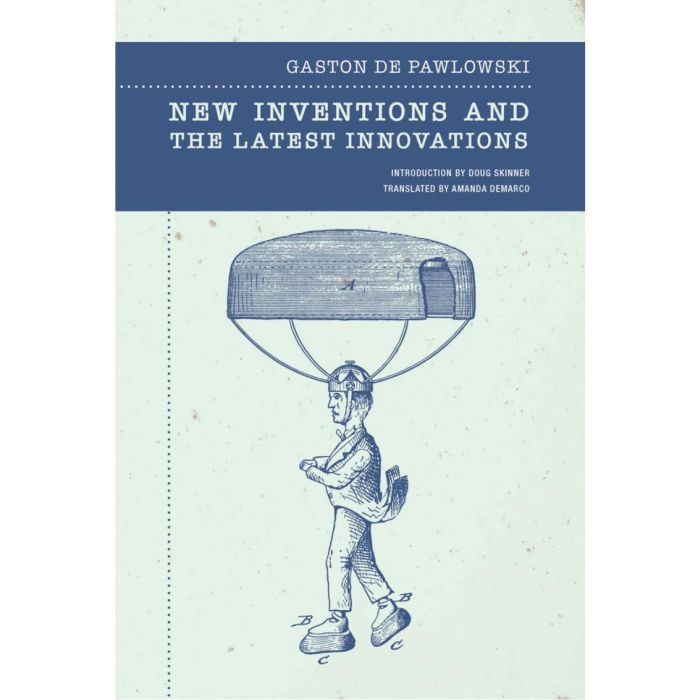My Cart
Your cart is empty
Looks like you haven't made your choice yet.
- Subtotal
New Inventions and the Latest Innovations

Gaston de Pawlowski
- D.A.P.
- Wakefield Press
- by Gaston de Pawlowski, Doug Skinner, Amanda DeMarco
More Information
| Publisher | D.A.P. |
|---|---|
| ISBN | 9781939663986 |
| Author(s) | Gaston de Pawlowski, Doug Skinner, Amanda DeMarco |
| Publication date | August 2024 |
| Edition | Paperback |
| Dimensions | 203 x 133 mm |
| Pages | 200 |
| Language(s) | English ed. |
| Exhibition | Wakefield Press |
Description
Satirical yet prophetical advertisements for imaginary new products, influential to Marcel Duchamp and Francis Picabia.
Originally published in book form in 1916, this volume of French author Gaston de Pawlowski's (1874-1933) writings, New Inventions and the Latest Innovations, collects the humorist's fictional columns mocking his era's burgeoning consumerism and growing faith in science. From anti-slip soap, gut rests and the pocket-sized yardstick to repurposed spittoons, nasal vacuums, electric oysters and musicographical revolvers, Pawlowski offers a far-sighted critique of technological gadgetry and a cynical promise to remove discomfort from every facet of life, even as World War I raged on and technology was unleashing new horrors onto humanity.
Pawlowski's humorous cultural critique and tongue-in-cheek celebration of uselessness and futility bears relevance for today, as technology remains the hoped-for answer to our increasingly troubled human condition.
Described with the excessive optimism of the sales pitch, these inventions of yesteryear were also an influence in the arts, admired by such figures as Marcel Duchamp and Raymond Queneau, and standing as a precursor to the work of such artists as Jean Tinguely and today's looming specter of AI-generated artwork and literature.

New Inventions and the Latest Innovations
